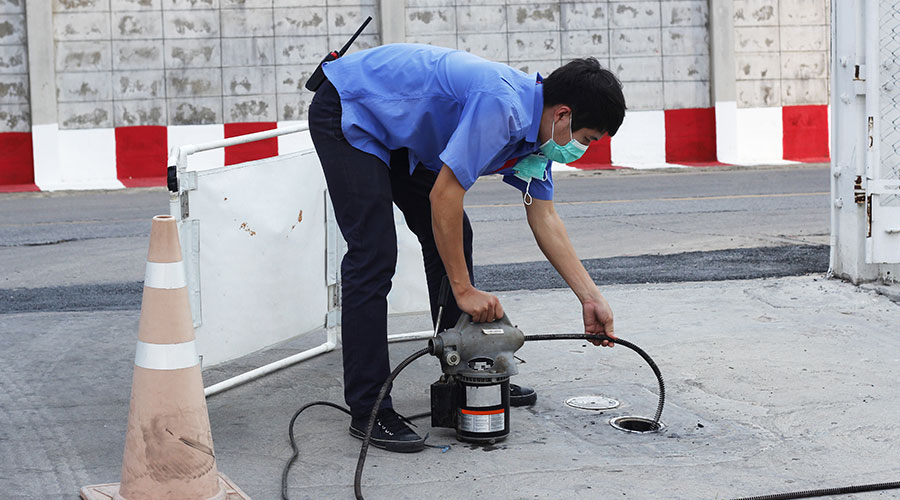« Return to FMDAA entries

Georgia College and State University, Milledgeville, Ga.
CATEGORY: Personnel Management
Overview
Georgia College was founded more than 125 years ago. Our campus consists of more than 90 buildings, many built in the early and middle 19th century, as well as more modern contemporary academic and residential units. The Facilities Operations Department of Georgia College is fortunate to have many highly qualified tradesmen maintaining our facilities. They are, however, part of a rapidly maturing workforce which will soon be retiring from our ranks. We will be faced with the task of replacing their skill and unique experiences sooner than we would like. The specific skill set our staff brings to the care and maintenance of our buildings would be hard to replicate in the best of circumstances. Losing so much exceptional talent, in a geographical area severely lacking any kind of skilled labor, will be hard to overcome.
While we are a university, we are not equipped to offer formal training in the trades, so we have made the decision to develop a new community partnership with a local technical college. Capturing this training through this partnership has been an unexpected gain. These classroom centered experiences, while being an important component in our thinking, only became effective when coupled with the mining of knowledge and experience present in our trade staff. We made a decision to capture our veteran’s knowledge and wisdom in a more proactive manner, while offering our younger staff members the opportunity to move forward with their careers, by creating an Apprenticeship program. The program combines classroom training at the technical college and approximately 18 months of on the job training with mentor tradesmen. Our decision to approach our training in this manner was predicated on four main components. The unique composition of our campus buildings, the highly specific skills of our trade staff, the evolving nature of formal technical training and the desire to offer opportunities for younger, proven staff to grow and advance.
Financial obstacles very often block innovative programs from getting off the ground. This program called for money to fully fund the apprentices’ salaries while they attended classes during the work day and also for the cost of that schooling. Support from upper administration was essential in implementing this initiative. Their support was a key component for us as the ability to pay is often a roadblock to educational advancement. The apprentice receives promotions with elevated pay and status as they reach certain milestones within the program. Viewing motivation as an obstacle may not always be a formal consideration, but it is a very real concern for those leading training initiatives. These preemptive considerations enabled us to present a very positive, motivating concept to our employees, which led to an increase in the number and quality of our candidates.
While we had little trouble selecting our apprentices, we did encounter issues when we realized our people fit into the category of non-traditional students. Enrolling in a college diploma program, which requires entrance testing in the areas of math and English, presented some moments of anxiety for our new apprentices. These programs also required basic education courses outside of the trade requirements we were expecting, so scheduling of coursework was an important component. Other considerations such as learning styles, learning disabilities and even one candidate’s experiences as a home-schooled student required our personal attention. The candidates would also find that financial aid information is a must for these programs. Each candidate was guided through tax paperwork and FAFSA submission with a step-by-step approach and a personal guide. We presented each with study materials and worked with our new technical college partners to support their preparation and stress reduction.
Our candidates are completing their first full academic year and have successfully completed over 30 hours of credit work. They are also working toward completing trade competencies with their mentors as part of their efforts to master the unique set of skills required by our campus composition. We expect that they will earn their diploma at the end of calendar year 2016. Their success has been observed by other staff members and the apprenticeship program has spawned other training initiatives specific to electrical, plumbing and carpentry and even a GED education program. As our apprentices transition to higher positions, their positions open up opportunities for others to fill. This pull through effect has caused our staff to become much more introspective and motivated relative to their own future possibilities. There is an increase in interest in training and attitudes toward lifelong learning. It is an accomplishment that we hope will provide exponential returns in our promising future.
In-house Participants
Mark Duclos, Director of Facilities Operations
Glenn Hunter, Special Assistant to the Director
Bruce Clayton, HVAC Apprentice
Derrieon Hickey, HVAC Apprentice
Susan Allen, Vice President, Finance & Administration
↑ Back to top








